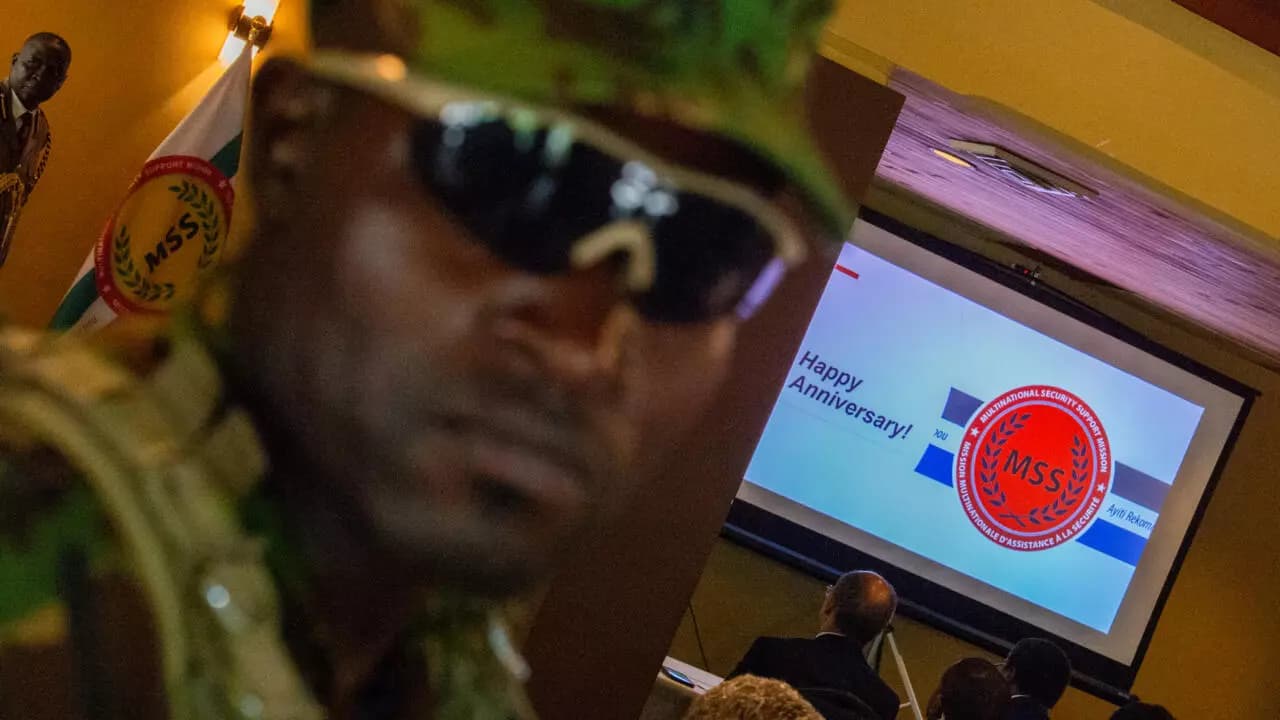We're loading the full news article for you. This includes the article content, images, author information, and related articles.
The United Nations Security Council has approved the deployment of a gang suppression force in Haiti, a move that concludes Kenya's previously anticipated leadership of the mission and shifts the dynamics of international intervention.

The United Nations Security Council (UNSC) has voted to deploy a multinational gang suppression force to Haiti, a decision that effectively ends Kenya's prospective lead role in the mission. This development marks a significant turn in the international community's approach to addressing the escalating crisis in the Caribbean nation.
Kenya had previously expressed its willingness to lead a multinational force to Haiti, a commitment that garnered international attention and support. The proposed deployment aimed to assist the Haitian National Police in restoring order and combating powerful gangs that have destabilized the country. Kenya's offer was seen as a bold step, positioning an African nation at the forefront of a complex security operation in the Americas. However, the initiative faced various legal and logistical challenges within Kenya, including court petitions questioning its constitutionality and the welfare of Kenyan officers.
Analysts suggest this new development could significantly influence public debate and policy execution regarding Kenya's foreign policy and security engagements. Stakeholders are now urging for clarity on the timelines, costs, and safeguards associated with any potential Kenyan involvement, or lack thereof, in the newly approved UNSC mission. The shift in leadership raises questions about the future of Kenya's international security commitments and its strategic partnerships.
The UNSC's decision to deploy a force under a different framework means Kenya will not be leading the mission as initially planned. This could alleviate some domestic pressure on the Kenyan government regarding the deployment, particularly concerning the legal challenges and public skepticism. However, it also means Kenya's opportunity to play a prominent leadership role in a major international security operation has diminished. The focus will now likely shift to how Kenya will re-evaluate its foreign policy objectives in light of this change.
Keep the conversation in one place—threads here stay linked to the story and in the forums.
Sign in to start a discussion
Start a conversation about this story and keep it linked here.
Other hot threads
E-sports and Gaming Community in Kenya
Active 9 months ago
The Role of Technology in Modern Agriculture (AgriTech)
Active 9 months ago
Popular Recreational Activities Across Counties
Active 9 months ago
Investing in Youth Sports Development Programs
Active 9 months ago